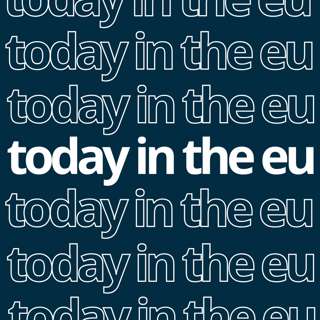
Dutch elections: What to expect?
In this episode, the Beyond the Byline podcast dives into the upcoming Dutch elections. Who can win the race, and what will the election result bring to the Dutch and the European Union?This Wednesday, 22 November, the Dutch are heading to the polls to vote in a snap parliamentary election. For the first time in 16 years, Mark Rutte, the previous prime minister whose government collapsed in July, is not running.The Dutch political scene is somewhat messy and unpredictable, with potentially up to 18 parties winning seats in parliament, possibly heralding a long period of coalition-building talks.But internationally, the expected change in leadership might also spell the end of the Netherlands playing a key role in making deals within the European Union, according to Sarah De Lange, a professor of political pluralism at the University of Amsterdam.We ask De Lange why this is a landmark election, who will win the race, and what the outcome will mean for the Dutch and for the European Union.
21 Marras 202313min

WHO: Dire conditions at Gaza’s hospitals
This week, the Beyond the Byline podcast looks into the critical situation unfolding in Gaza's hospitals as Israel continues its military operations in the strip.Medical centres - once a refuge for civilians - have been struggling to continue to operate with their fuel, electricity and medical supplies cut off. On Wednesday, the Israel Defence Forces raided Gaza's biggest hospital, Al-Shifa, saying that Hamas militants were hiding out beneath the building.Doctors and aid workers on the ground have put out calls for a ceasefire, with the United Nations relief chief stating that "hospitals are not battlegrounds".We discussed the critical situation in Gaza's medical facilities with Christian Lindmeier, a spokesperson at the World Health Organisation (WHO).
16 Marras 202319min

VDL's Western Balkan tour: Promises and warnings on EU enlargement
This week the Beyond the Byline podcast looks at Commission President Ursula von der Leyen's tour of the Western Balkans.The EU executive chief talked to leaders of Western Balkans countries to encourage their governments to continue their hard work to meet EU membership standards, while warning that many are falling short of the requirements, and Brussels’ newfound appetite for enlargement might not last forever.The six Western Balkan states of Albania, Bosnia and Herzegovina, Kosovo, Montenegro, North Macedonia and Serbia are all aspiring EU members. Accession for any of them looked a distant prospect until Russia’s full-scale invasion of Ukraine last spring got Brussels talking seriously about enlarging the EU again.
3 Marras 202311min

EU proposes new pesticide reduction target amid controversy
The European Commission's plan to reduce pesticide use has faced criticism from European farmers, primarily due to concerns about the availability of alternatives by 2030.In response, a new target is being proposed to make the EU executive accountable for providing farmers with low-risk options and actively contributing to creating a robust market for such products.European Parliament members (MEPs) want to set an ambitious yet achievable target, considering technical and market insights, and request the Commission establish a methodology for calculating it.ember states must set their national goals for increasing the sales of low-risk plant protection products and biological control.We asked Green MEP Jutta Paulus how the Parliament's position has evolved regarding the reduction targets for chemical pesticides and more hazardous plant protection products, and what are the key disagreements between the conservative side of the Parliament and the Greens in the context of the compromise amendments discussed?
30 Loka 202311min

International Humanitarian Law: Who is eligible for protection?
This week the Beyond the Byline podcast takes a deep dive into the global rules governing warfare - or international humanitarian law, as it’s officially called. The rules, established in the wake of the Second World War, seek to limit the effects of armed conflict, guided by the 1949 Conventions that 196 states are party to.To find out what the ground rules are, who is eligible for protection, and what happens when these rules are violated, we turn to Dr. Knut Dörmann, head of the delegation of the International Committee of the Red Cross to the EU, NATO, and Belgium, and Brian Finucane, senior adviser at the International Crisis Group, an independent organisation working to prevent wars and shape policies that will build a more peaceful world.
26 Loka 202320min

EU's divisions on Gaza: Heading towards a change of tone?
This week, Euractiv’s Beyond the Byline podcast takes a look at the division sweeping across the EU amid mixed signals from officials on the Israel-Hamas war.EU leaders held a virtual conference on Tuesday (17 October) to decide their common stance regarding the conflict that has exploded between Israel and Hamas in recent days. The talks came in the wake of criticism that European Commission President Ursula von der Leyen overstepped her remit with her unequivocal support for Israel.We asked Ricardo Borges de Castro, Associate Director and Head of Europe in the World Programme at the European Policy Centre, and Georgi Gotev, Euractiv’s Senior Editor, if the tone is changing - and what hope there is for a diplomatic solution to the war.
19 Loka 202316min

Polish Elections: EU and pro-democracy path at stake
With Polish citizens due to head to the polls to vote in the country's national elections on Sunday (15 October), this week Euractiv’s Beyond the Byline podcast is exploring what is at stake in the vote.The incumbent Law and Justice party (PiS), in power since 2015, has introduced divisive reforms including massive restrictions on women's reproductive rights and a more autonomous stance towards EU policy.Ongoing scandals, like the visa controversy, could affect the elections, with concerns over media bias and censorship complicating the electoral atmosphere. The outcome could lead to a coalition government or political instability, shaping Poland's uncertain political future.We spoke with Aleks Szczerbiak, a politics professor and Polish specialist at the University of Sussex, and Sonia Horonziak, political scientist and coordinator of the Democracy and Civil Society Programme.
12 Loka 202322min

Nagorno-Karabakh: What is happening and what is the EU’s outlook?
This week, Euractiv’s Beyond the Byline podcast takes a deep dive into the evolving crisis in Nagorno-Karabakh. Thousands of ethnic Armenians living in the territory have been displaced following Azerbaijan's recent offensive to regain control of the contested enclave - dramatically reshaping the conflict landscape.The dissolution of Nagorno-Karabakh's government marks the culmination of over three decades of separatist rule, with far-reaching geopolitical implications in the South Caucasus. What is the EU's involvement in the region, and what is the future outlook?Join us as we unravel together with Dr. Anna Ohanyan Professor of Political Science and International Relations at Stonehill College the complex history and intricate power dynamics that have brought us to this pivotal moment.
5 Loka 202316min






















